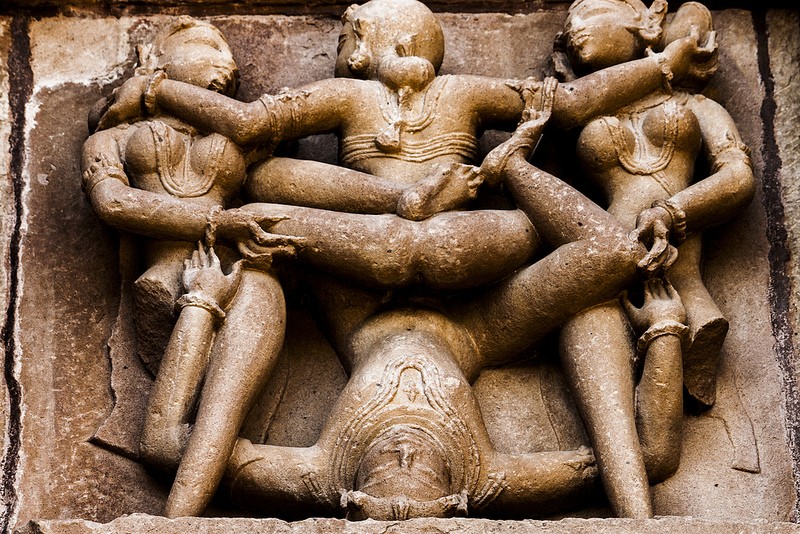Indian social media networks have been on fire this week, after someone leaked a copy of the Department of Telecommunication's secret order to ban 857 websites thought to contain pornographic content.
The order was issued to Internet service providers, who duly complied, but this didn't last long. Many criticised the government for act, calling it “talibanisation” or extreme censorship. Others pointed out that some of the sites blocked didn't contain pornography at all — humor and file-sharing sites were also swept up in the ban. The department soon announced that the ban was temporary, and would be permanently applied only to sites that contained child abuse or pornography.
Commentary online ranged from those criticising the government's actions as censorship and a violation of individual rights, to those supporting the ban on the grounds that it protects citizens from private videos going public. Several posts also mocked the outcomes of the move.
The most dangerous time for a govt is not when it is attacked but when it is laughed at #PornBan
— vir sanghvi (@virsanghvi) August 4, 2015
Among those who praised the ban was activist and lawyer Kamlesh Vaswani, who once made an abortive appeal in the Indian Supreme Court to have pornographic sites blocked:
“Under Prime Minister Modi’s good governance and the good faith with which this government has been working,” Mr. Vaswani said in an interview, “they have been instrumental in blocking the 857 websites that I have been looking to get blocked.”
- Kamlesh Vaswani
Others such as Twitter users Sudhir Chaudhary and Reddit India pointed out the ironies behind the move and had some fun at the government's expense:
It's interesting how #PornBan has brought the entire nation together.Issues like poverty,terrorism,unemployment could never unite INDIA..
— Sudhir Chaudhary (@sudhirchaudhary) August 6, 2015
For those without access due to #PornBan, some vintage, desi stuff. Old thread on Reddit: http://t.co/6QycQmQlU0 pic.twitter.com/L2LPXIfM96
— Reddit India (@redditindia) August 2, 2015
Indian member of Parliament Baijayant Jay Panda shared a map of the world showing devices connected to the Internet which highlighted India's poor connectivity, and quipped:
Maybe this was bcz of the #PornBan? Let's see if this part of the world lights up tomorrow or over the next 5 yrs 😎 https://t.co/igCtrM5EIn — Baijayant Jay Panda (@PandaJay) August 4, 2015
And Twitter user Tinu Cherian joked that the ban in fact had the unintended effect of giving porn sites more attention than usual:
#PornBan but the entire list of 800+ websites is public. Ban is now lifted. Thank you GOI for educating the public with a big list.
— Tinu Cherian Abraham (@tinucherian) August 4, 2015
Others pointed out that after the US, UK and Canada, India is the world's fourth largest consumer of online pornography. In the previous week, when the news of the ban was ramping up, news sites and social media users shared workarounds and hacks that would allow users to access porn sites via proxy servers:
Thanks me later :-) #pornban pic.twitter.com/STcRG5fbPb
— shailesh kumar (@sheeludon) August 4, 2015
Pranesh Prakash, lawyer and Policy Director at the Bengaluru-based Centre for Internet and Society, first shared the list of blocked sites and asked a tough question concerning child pornography:
Question to fellow lawyers: Wouldn't an ISP official viewing child porn before blocking it be culpable under s67B IT Act?
— Pranesh Prakash (@pranesh_prakash) August 5, 2015
Not all of the ISPs who blocked the 857 sites have unblocked all of them. Nikhil Pawa of MediaNama pointed at the dilemma now faced by the ISPs:
[..]if child porn is found on any of the unblocked sites in the list, the ISPs will be held liable for the content under Section 79(3)(b). Now, how exactly are the ISPs expected to determine whether any of the 857 sites have child pornography or not? Can they be expected to watch each and every video, and determine whether someone in the porn video is above or below the age of 18?
The blocking of websites in India is not new. In the past, the government has ordered ISPs to block as many as 32 websites, including the code repository Github, video streaming sites Vimeo and Dailymotion, and the Internet Archive, which was reversed after heavy criticism.
The never-ending debate continues, with some arguing that adult citizens should be given freedom of choice, while others argue that the objectionable adult content on these web sites is having an adverse impact on Indian society and culture.
According to Sandip Roy of First Post, there is no happy ending to the porn ban:
Online pornography might not be as pressing an issue for the national economy as the Land Bill or GST but by rushing into without thinking it through and then doing a wishy-washy half U-turn with a “lift” that’s not quite a “lift”, the government has ensured that this porn story will not have a happy ending for anyone.





2 comments